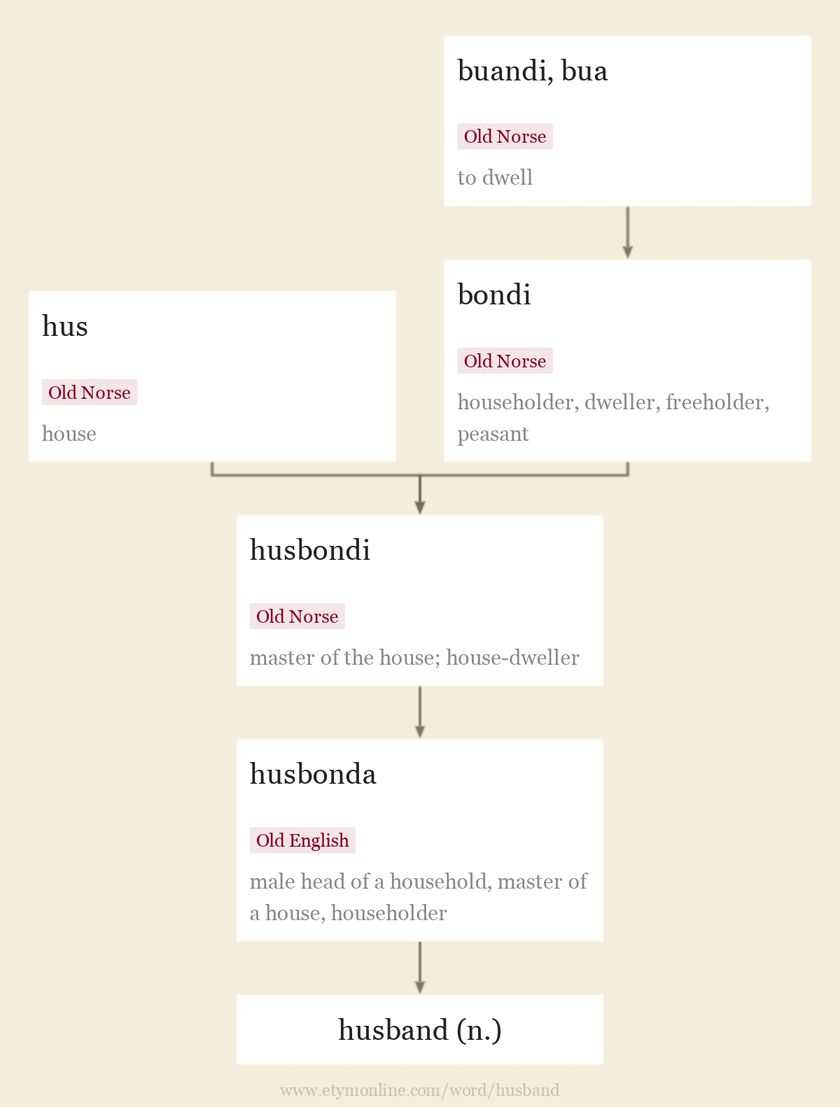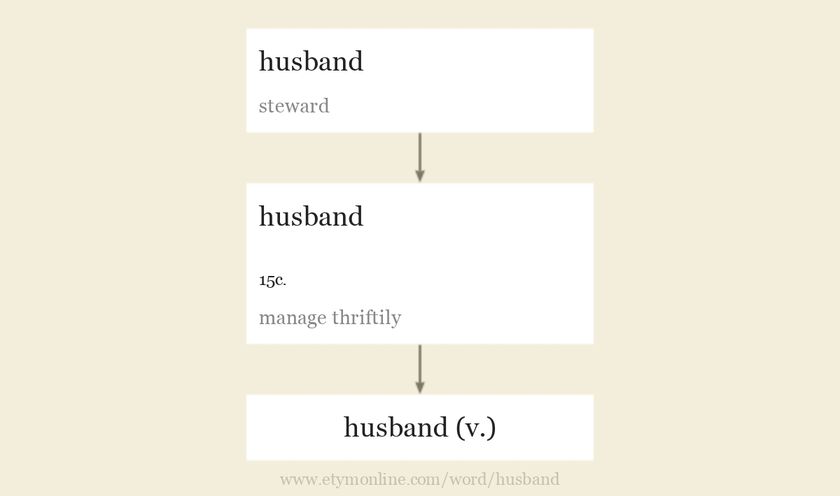| 词源 |
husband n.Old English husbonda "male head of a household, master of a house, householder," probably from Old Norse husbondi "master of the house," literally "house-dweller," from hus "house" (see house (n.)) + bondi "householder, dweller, freeholder, peasant," from buandi, present participle of bua "to dwell" (from PIE root *bheue- "to be, exist, grow," and compare bond (adj.)). Slang shortening hubby is attested by 1680s. Beginning late 13c. it replaced Old English wer as "married man (in relation to his wife)" and became the companion word of wife, a sad loss for English poetry. Old English wer, in the broadest sense "man, male person" (from PIE root *wi-ro- "man"), is preserved in werewolf. husband v. "manage thriftily," early 15c., from husband (n.) in an obsolete sense of "steward" (mid-15c.). Related: Husbanded; husbanding. updated on October 13, 2021 |

